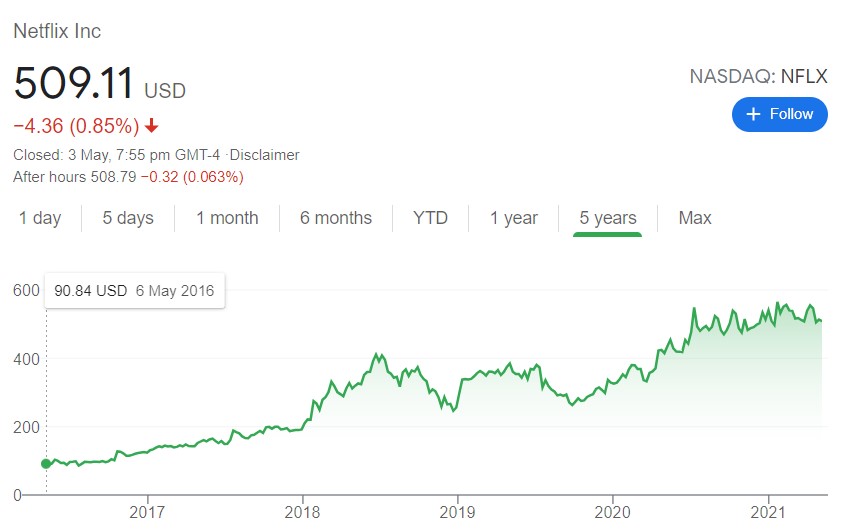There are numerous stories of successful investors in the media.
It’s natural for you to want to emulate their achievements.
However, you should realise that investing is more than just about numbers and analysis.
It also involves a huge dose of emotional control.
Let me explain.
When you invest, you are setting aside money that you hope can grow over time and also hopefully churn out more money with the payment of dividends.
Any activity that involves money tends to be an emotional matter as it represents your hard earned cash.
Therefore, the investment process can end up being an emotional roller-coaster ride that could trip you up if you’re not careful.
Here are five emotional hurdles that you need to jump over if you want to achieve long-term investment success.
1. Fear
Fear of the unknown was what kept man alert for danger in the olden days.
Not much has changed since then.
Although society is now much more developed, our old fear instincts are still intact.
And when stock markets crash without reason, the fear factor can be ratcheted up several notches.
When investors fear losing the hard-earned profits they made, it will cause them to take impetuous actions such as selling at a loss.
Remember that the decline in share prices may just be temporary as other investors are infected by their own emotions and pessimism.
By giving in to your fear, you could be locking in a loss on a great company just because its share price plunged temporarily.
2. Greed
Greed tends to rear its ugly head when share prices are steadily rising.
Sometimes, the crowd chases after a hot fad or trend that causes share prices to spike up significantly.
Seeing others get rich triggers greed in many investors as they hope to enjoy the same profits, too.
If the share price of a company is rising without any fundamental reason, you should resist the urge to join the crowd.
Warren Buffett, one of the most successful investors in the world, has some good advice on this: “Be greedy when everyone is fearful, and fearful when everyone is greedy”.
So when investors are greedily buying companies, you should remain cautious and refrain from jumping in without first doing your research.
3. Volatility
Many investors worry about volatility as these fluctuations may induce a mixture of dread and panic.
Volatility may trigger worries concerning the status of the business, especially when investors tend to overreact to bad news.
But remember that the road to long-term investment success is always paved with uncertainty.
If you don’t believe me, take a look at the share price chart of Netflix (NASDAQ: NFLX) below.

Source: Google Finance
The share price of the online streaming company has surged more than five-fold in the last five years, from US$90 to around US$509.
But the ride was far from smooth.
The graph above shows sharp plunges in 2018 and 2019 as the company periodically missed quarterly earnings expectations.
If you had sold your shares anytime along the way, you would have missed out on spectacular capital gains.
4. Impatience
It’s admittedly tough to remain patient in a world that’s filled with instant gratification through smartphones and the internet.
These technological advancements have shortened our attention span over time, making us crave constant stimulation in a world that’s filled with a barrage of information.
Investors are getting more impatient, as evidenced by the shorter holding period for investment portfolios over the years.
However, businesses need time to execute their growth plans and initiatives.
These strategies also need time to incubate and achieve results.
Over time, a great business can grow its revenue, net profits and cash flow quicker, leading to a steadily rising share price.
The patient investor can look forward to steady capital appreciation and may even enjoy a stream of increasing dividends along the way.
5. Regret
The band New Order has a song titled “regret is a useless emotion”.
We concur and agree that there’s probably no better way to describe regret.
When applied to investing, regret can cause us to hold back and mull over mistakes made.
This hesitation can prevent us from taking action to invest our money and hold us back from successfully deploying our capital for better returns.
Recognise, though, that no investor is perfect.
Everyone, including Warren Buffett, has made mistakes before.
But if you learn from these mistakes, you will end up becoming a wiser and better investor.
Want a sweet combination of dividends and growth from your stock portfolio? Download our latest special FREE report, 8 Singapore Stocks for Your Retirement Portfolio HERE. We cover eight blue chips and mid-cap companies that we believe can ride the recovery and offer investors a great mix of both growth and income. Click HERE to download for FREE now!
Follow us on Facebook and Telegram for the latest investing news and analyses!
Disclaimer: Royston Yang does not own shares in any of the companies mentioned.




